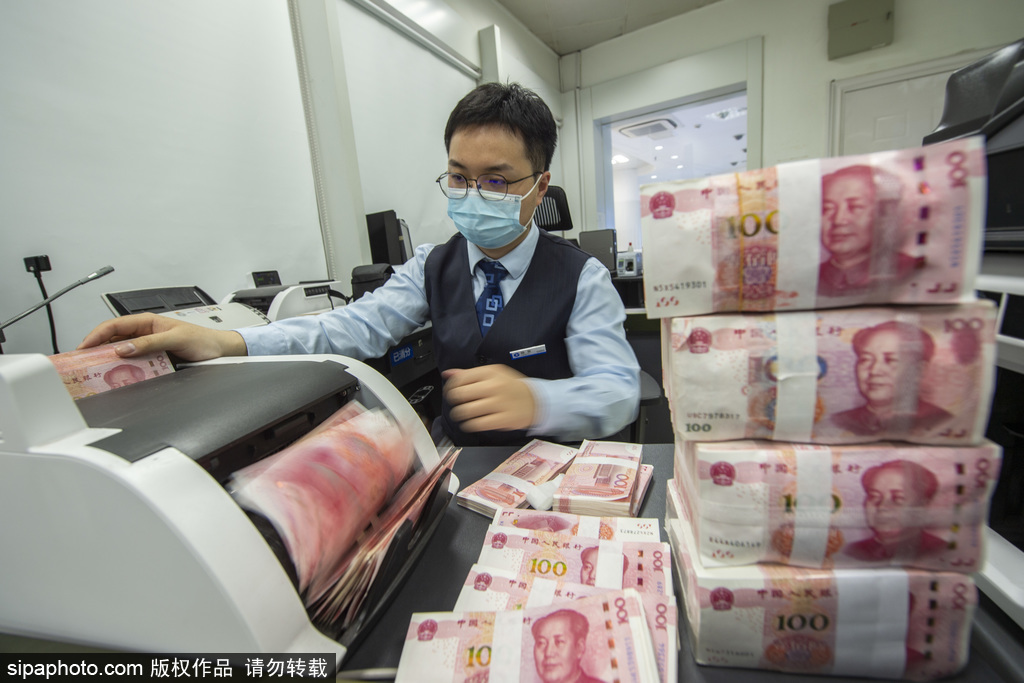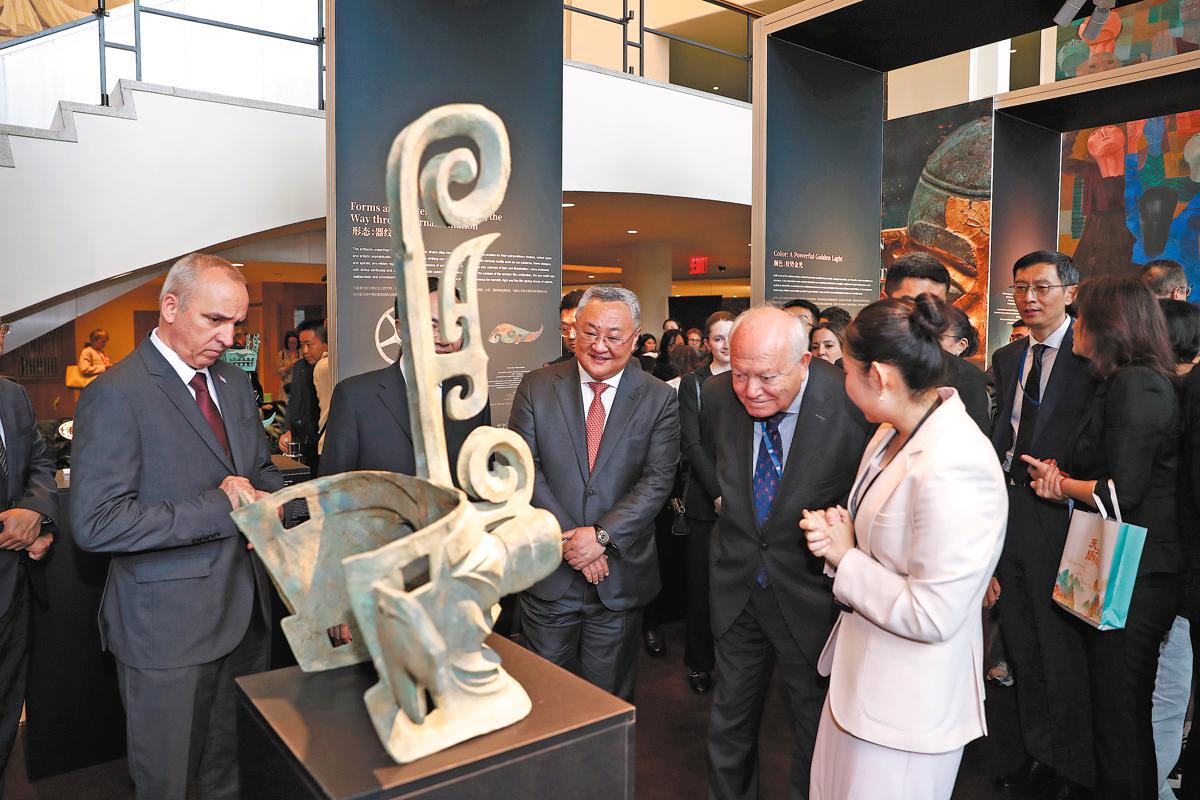The United Nations celebrated on Monday the first International Day for Dialogue among Civilizations with a high-level event cohosted by China’s Permanent Mission to the UN and the United Nations Alliance of Civilizations. The celebration brought together diplomats, cultural leaders and civil society representatives from across the globe.
Speaking via video, Chinese Foreign Minister Wang Yi emphasized the urgency of intercultural dialogue amid current geopolitical instability. Dialogue among civilizations is a bond of peace, a driver of development and a bridge of friendship, he said.
Wang called for upholding equality among civilizations, promoting exchanges among civilizations, and advancing the progress of civilizations. He also highlighted the Global Civilization Initiative, proposed in 2023 by President Xi Jinping, as part of the country’s efforts to build a community with a shared future for humanity.
The UN General Assembly unanimously adopted a resolution last year, cosponsored by over 80 countries, that declared June 10 as International Day for Dialogue among Civilizations.
Fu Cong, China’s permanent representative to the UN, also spoke at the event, warning about an increase in global discrimination and cultural intolerance.
“Discrimination and prejudice against different cultures, races, skin colors and social systems are on the rise,” Fu said. “Theories of superiority and civilizational conflict are making waves. It is, therefore, high time to champion the diversity of civilizations and strengthen civilizational exchanges and dialogue.”
He emphasized the need for inclusive engagement in promoting dialogue, calling for active participation from governments, political parties, women, youths and other sectors of society.
Fu also called for expanded cultural and people-to-people exchanges, stressing the importance of engagement by governments, political parties, women, youths and others.
“Cultural exchanges and effective communication have always been an important bridge for people of all countries to deepen understanding and trust,” he said.
UN Secretary-General Antonio Guterres said in a video message that on the first International Day for Dialogue among Civilizations, people celebrated “the rich diversity of civilizations as a force to promote mutual understanding and global solidarity”.
“Today, that mission is more urgent than ever,” he said, adding, “In our fractured world, dialogue is not optional — it is essential for building bridges of understanding and trust.”
The thematic event, moderated by Fu, also included remarks from high-level officials including UN General Assembly President Philemon Yang and UN Alliance of Civilizations High Representative Miguel Angel Moratinos. Diplomats from Egypt, Peru, Spain and Uzbekistan, co-organizers of the event, spoke as well.
Moratinos, who is also the UN special envoy to combat Islamophobia, said: “Dialogue is a timely priority, but even more so today. We are living in an era marked by deep uncertainty, increasing political tension, violent conflict, social fragmentation, climate change and the dangerous spread of hate speech, racism and extreme politicization.
“The adverse impact of all these crises is deeply felt across our societies. They fracture them and sow division, mistrust and fear. In such a context, dialogue is not an abstract gesture of goodwill — it is a strategic imperative. It is our most effective means to defuse tension, build trust and reaffirm our common humanity,” he said.
Event participants were invited to view a multimedia exhibition titled Mutual Learning Among Civilizations, Shared Global Vision, featuring three curated sections — The Light of the Sun: Ancient Shu Civilization and the World;Civilization and Shared Aspirations, a display of graphic artworks; and The Declaration of Civilizations, a visual interpretation of shared human values.
The evening concluded with a cultural performance titled Dialogue Across Mountains and Seas, featuring music, dance and visual storytelling from across different continents. Monday’s event brought together more than 1,000 participants, including senior diplomats, UN officials and representatives of civil society.
The event “was very timely and very welcome”, Enrique Armando Roman Morey, permanent representative of Peru to the UN, told China Daily. “We attend many events where we feel the tensions of the world. But today was an event where we felt the capacity to build bridges among civilizations.”
Moratinos told reporters: “We are in the 21st century. We are not in the time of Neanderthals or prehistory, where people only knew how to solve problems by killing each other. We are in the 21st century — it is time to put an end to war and conflict. And for that, the only way to solve a conflict, controversy or difference is through dialogue.”
“But it has to be a constructive dialogue,” he added. “It has to be a sincere dialogue. It has to be a committed dialogue. It has to be a respectful dialogue. It has to be a dialogue that understands the other, that doesn’t impose something on the other.”
Furthermore, Moratinos said, “I think China, the Alliance of Civilizations and the UN share the same values and the same methodology — to create a better world.” ( from China Daily News)
Caption: Fu Cong (center), China’s permanent representative to the United Nations, and Miguel Angel Moratinos (right), high representative for the UN Alliance of Civilizations, look at an artifact from China’s ancient Shu civilization on Tuesday at a themed exhibition to mark the first International Day for Dialogue among Civilizations at the UN headquarters in New York, the United States


 Local2 weeks ago
Local2 weeks ago
 International4 weeks ago
International4 weeks ago
 Government3 weeks ago
Government3 weeks ago
 Sports2 weeks ago
Sports2 weeks ago
 Tourism3 weeks ago
Tourism3 weeks ago
 Business4 weeks ago
Business4 weeks ago
 Local4 weeks ago
Local4 weeks ago
 International4 weeks ago
International4 weeks ago






















